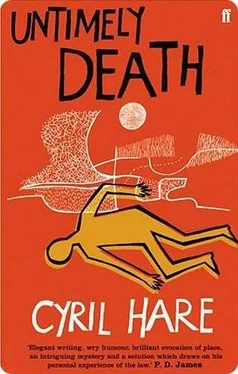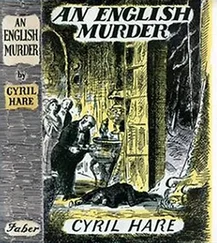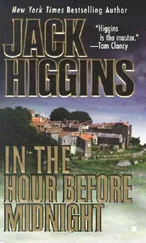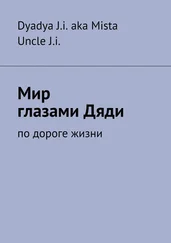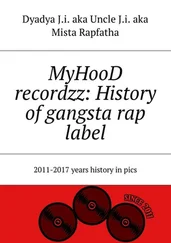Cyril Hare - Untimely Death aka He Should Have Died Hereafter
Здесь есть возможность читать онлайн «Cyril Hare - Untimely Death aka He Should Have Died Hereafter» весь текст электронной книги совершенно бесплатно (целиком полную версию без сокращений). В некоторых случаях можно слушать аудио, скачать через торрент в формате fb2 и присутствует краткое содержание. Жанр: Детектив, на английском языке. Описание произведения, (предисловие) а так же отзывы посетителей доступны на портале библиотеки ЛибКат.
- Название:Untimely Death aka He Should Have Died Hereafter
- Автор:
- Жанр:
- Год:неизвестен
- ISBN:нет данных
- Рейтинг книги:3 / 5. Голосов: 1
-
Избранное:Добавить в избранное
- Отзывы:
-
Ваша оценка:
- 60
- 1
- 2
- 3
- 4
- 5
Untimely Death aka He Should Have Died Hereafter: краткое содержание, описание и аннотация
Предлагаем к чтению аннотацию, описание, краткое содержание или предисловие (зависит от того, что написал сам автор книги «Untimely Death aka He Should Have Died Hereafter»). Если вы не нашли необходимую информацию о книге — напишите в комментариях, мы постараемся отыскать её.
Untimely Death aka He Should Have Died Hereafter — читать онлайн бесплатно полную книгу (весь текст) целиком
Ниже представлен текст книги, разбитый по страницам. Система сохранения места последней прочитанной страницы, позволяет с удобством читать онлайн бесплатно книгу «Untimely Death aka He Should Have Died Hereafter», без необходимости каждый раз заново искать на чём Вы остановились. Поставьте закладку, и сможете в любой момент перейти на страницу, на которой закончили чтение.
Интервал:
Закладка:

Cyril Hare
Untimely Death aka He Should Have Died Hereafter
A Francis Pettigrew Mystery
To MICHAEL GILBERT
Note:
Exmoor, where the action of this book is represented as occurring, is, thank heaven, a real place, inhabited by living men and women. It should therefore be made clear beyond the possibility of doubt that the localities and characters here depicted are purely imaginary and bear no relation whatever to any existing place or person.
C.H.
CHAPTERI. Journey into the Past
The holiday had been Eleanor’s idea in the first place. Holidays for Francis Pettigrew signified first and foremost strange beds and a strange bed meant, for the first night at least, waking up in the small hours instead of sleeping through till dawn. None the less, as he lay wakefully watching the shifting pattern of the moon-shadows on the wall, he was prepared to concede that it was an excellent idea. Nowadays, he acknowledged, not without shame, it would be difficult to find any departure from the monotony of their rather humdrum joint existence that was not due to an idea of Eleanor’s. More and more, with advancing years, he had tended to resign the initiative in affairs to his still young wife. It made for peace, and so far he had had no reason to regret it.
It had been Eleanor’s idea, to begin with, to sell half her slender store of gilt-edged securities and invest them in industrial shares just at the beginning of the Stock Exchange boom in the early nineteen-fifties. It had been her idea, again, to convert part of the resulting profits into a small car, a moment before the prices of her holdings began to slide downwards in 1955. From the acquisition of the car to going away for a holiday was no more than a step. But it was a step that had consumed rather more time in the taking than either of them had contemplated. Eleanor had carried out her financial transactions with a gay disregard for the head-shaking of experts that had been triumphantly justified by the result. There are, however, some matters in which the head-shaking of experts is apt to be decisive, and the driving test is one of them. There had been a period when the whole project seemed likely to founder on the brutal requirements of the Road Traffic Acts. Pettigrew, who had firmly announced that he was too old to attempt to learn, had watched his wife’s struggles in a frame of mind in which hope for her success and fear for his own safety were neatly balanced. Meanwhile, the summer passed. The holiday had been planned for the end of June; by the time Eleanor was at last made free of the road August was over.
Even there, Pettigrew reflected, her luck had held. Summer had miraculously prolonged itself into September, for one thing. That, of course, was a phenomenon from which a good many other people had benefited. One could not suppose that it had been arranged peculiarly in Eleanor’s favour. But it had surely been by some special dispensation of Providence that almost at a moment’s notice she had been able to find rooms to let in a farmhouse on the very edge of Exmoor at the height of the stag-hunting season. He had tried to indicate to her how extraordinarily lucky she had been, but Eleanor, who disapproved of blood-sports and had yet to learn of their importance in the economics of Exmoor, took her good fortune very much for granted. That being so, Pettigrew, who tended to become more secretive with advancing years, had not thought it worth while to enlarge on the coincidence that had brought him back to Sallowcombe after an interval so long that it fairly terrified him to contemplate it. That period of his life, in any case, was so remote that it had ceased to have any significance. Everything had changed since then, himself most of all. He came to the place as a complete newcomer. It was better so.
None the less, it had been somewhat of a shock when the car drew up before an entrance that seemed to have shrunk in size with the years but in no other respect had altered in the least. He had not thought that his recollection would be so clear. The shock had been even greater when on penetrating inside he found everything altered out of recognition. But it was a shock for the most part of relief. As a realist he could only be thankful for the change. He had loved the place dearly in those days, but he did not think that at his present age he could have endured its rigours, and he was quite certain that his wife could not. With a memory stimulated by his surroundings he recalled the Sallowcombe of his youth, with its persistent smell of the stable, the candles flickering in the fierce draughts, the lumpy feather beds, each with its appropriate furniture beneath. He had thought it pure heaven then, but now… Thank goodness for a comfortable mattress, he reflected, as he wearily turned over for the tenth time, even if I can’t sleep on it.
But if the Sallowcombe of today, with its indoor sanitation, smart threepiece suites and the television set in the visitors’ lounge, was a change from the ramshackle establishment of the past, the difference was as nothing beside the difference between its inhabitants of then and now. Pettigrew remembered of old a coarse, jovial, occasionally drunken couple, slightly larger than life, as the figures of one’s childhood are apt to be, who had alternately fascinated and terrified him. Their geniality had been overwhelming, their rages alarming, and their vocabulary, particularly when in their cups, had contributed freely to his education. In the place of this Dickensian pair now reigned a sober, widowed butcher whose home was admirably administered for him and for his visitors by his sober, widowed daughter. They were dull in comparison, but it made for comfort.
Thinking it over as he lay there, Pettigrew, an inveterate analyser of his fellows, wondered whether they were quite so dull as at first appeared. Of Mr. Joliffe he had so far seen little, though he liked what he had seen. He was a serious, elderly man, with the pink fleshiness that master butchers always seem to acquire in the way of their profession; and he showed clearly by his speech that he was not a native of Exmoor but had come to it from somewhere “up country”. (Or should the phrase be “down country”? Pettigrew, who had not heard it used for half a century, puzzled his sleepy brain with the problem for some time before deciding that it did not matter and that in any case the expression, as a local usage, was probably long out of date.) He was the owner of a good business in Whitsea, on the coast a dozen miles away, and his farm was auxiliary to the business, just as the letting of rooms to visitors was auxiliary to the farm. It had surprised Pettigrew a little that so obviously prosperous a man as Joliffe should have concerned himself with yet a third, and comparatively trivial source of income. But that evening he had accidentally witnessed a scene which revealed Joliffe as a person unlikely to overlook any financial question, large or small. One of his small granddaughters had left the electric light on in an empty room. The result had been an explosion of temper quite out of proportion to the offence. Clearly, there were some things that could disturb the massive calm with which Mr. Joliffe confronted the world, and those were things that touched his pocket.
The granddaughter had accepted the reproof very calmly. Evidently, at twelve, she had learned to be philosophical in such matters. If anybody had been upset, it was her mother. Quiet, shy, soft-spoken Mrs. Gorman was obviously completely devoted to her two young daughters. She was no less obviously in some dread of her masterful father. But quiet and submissive as she was, Pettigrew had little doubt that if it came to the point, she would be prepared to dare anything or anyone in her children’s interests. She was, he judged, of the possessive type of mother, whose affection for her young would leave no room for any real interest in any other human being.
Читать дальшеИнтервал:
Закладка:
Похожие книги на «Untimely Death aka He Should Have Died Hereafter»
Представляем Вашему вниманию похожие книги на «Untimely Death aka He Should Have Died Hereafter» списком для выбора. Мы отобрали схожую по названию и смыслу литературу в надежде предоставить читателям больше вариантов отыскать новые, интересные, ещё непрочитанные произведения.
Обсуждение, отзывы о книге «Untimely Death aka He Should Have Died Hereafter» и просто собственные мнения читателей. Оставьте ваши комментарии, напишите, что Вы думаете о произведении, его смысле или главных героях. Укажите что конкретно понравилось, а что нет, и почему Вы так считаете.
